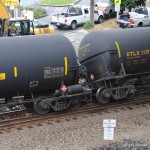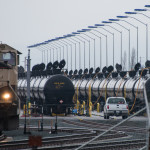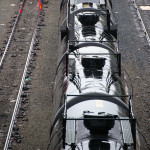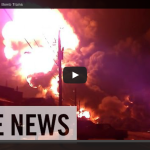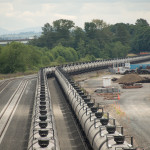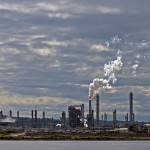Series: The Northwest's Pipeline on Rails

Westbound oil train, Essex, MT. Photo credit Roy Luck.
Since 2012, nearly a dozen plans have emerged to ship large quantities of crude oil by train to Northwest refineries and port terminals. This would be a major change for the Northwest’s energy economy, yet so far, the proposals have largely escaped notice. This series begins with a report that is the first comprehensive, region-wide review of all the oil-by-rail projects planned or currently operating in the Pacific Northwest, and it proceeds with updates on and analysis of their development.

